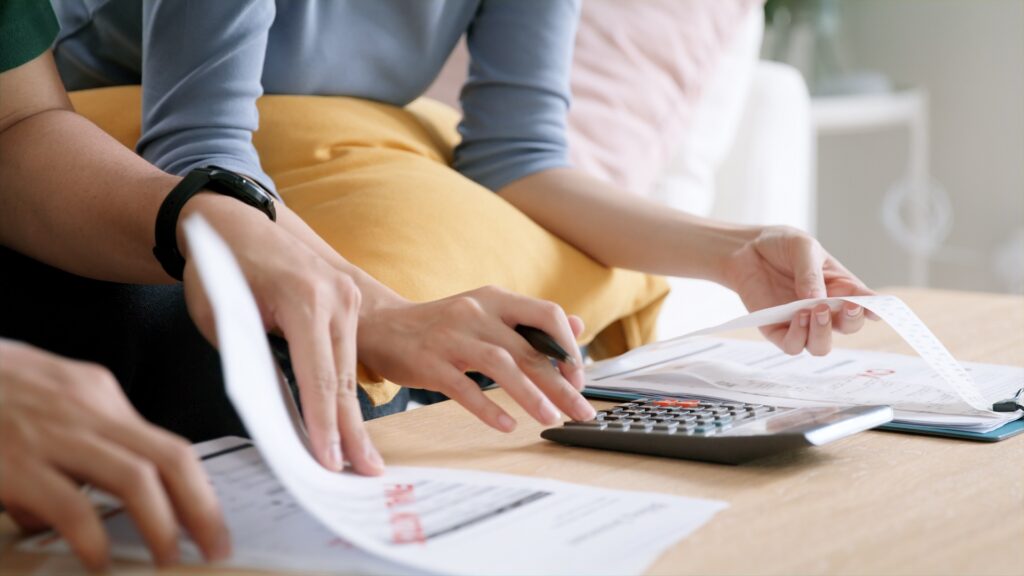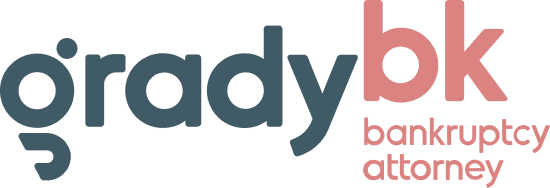Facing bankruptcy in New York can feel overwhelming. But we’ve designed this guide to make things easier for you. We’ll break down what you need to know about the two main types of bankruptcy – Chapter 7 and Chapter 13. You’ll learn how they work, who can apply, and how they might affect your credit score.
Grady BK, PLLC helps people just like you get through their bankruptcy smoothly. We’ll keep you in the loop with the latest changes in bankruptcy laws and give you some handy tips if you’re thinking about going down this path.
If you need specific advice about your current situation, call our office today (315-299-9005).
Understanding Bankruptcy: Chapter 7 and Chapter 13
Bankruptcy is a legal solution for when you’re stuck under a mountain of debt and can’t find a way out. In New York, you have two main options for a personal bankruptcy: Chapter 7 and Chapter 13. Both types offer a different path that is designed for different situations:
- Chapter 7 Bankruptcy: Think of this as a fresh start. If your income is below a certain threshold and paying off all your debts seems impossible, Chapter 7 might be the way to go. It’s like hitting a reset button. Most of your debts can be wiped out, but things like child support, student loans, and most taxes can not be wiped away.
- Chapter 13 Bankruptcy: This is more about reorganizing your debts. If you have a regular income, Chapter 13 lets you keep your property and pay back a percent of your debts over time, usually in 3 to 5 years. It’s like a structured payment plan that helps you organize and gradually pay off your debts in a manageable way. At the end of the bankruptcy, any remaining unsecured debt will be wiped away.
Each type has its own rules and outcomes, so knowing which one fits your situation is important. Now, we’ll get into the specifics of each kind to help you understand which one might be the best fit for you.
Chapter 7 Bankruptcy: Starting Fresh
Chapter 7 is about giving you a clean slate, especially if your paycheck isn’t enough to handle your debts. Unsecured debts are discharged without any form of repayment. Important assets like your home or car are usually protected (the law gives you exemptions that protect most property).
It’s a pretty quick process and can wrap up in just a few months. Most of your debts will be cleared, but not everyone will be eligible.
Chapter 13 Bankruptcy – The Payback Plan
On the other hand, Chapter 13 is for people who have a steady income and either make too much to file a bankruptcy or need to pay back mortgage arrears or property tax arrears to stop a foreclosure. This plan is about reorganizing your unsecured debts so you can pay back a percent of them over time and have the rest of the debt wiped away.
Who Can File for Bankruptcy and How It Affects Your Credit
When it comes to filing for bankruptcy, which chapter you are eligible for depends on several things. For Chapter 7, there’s something called the ‘means test.’ It basically checks if your income is lower than the average income in New York based on your household size. If it is, you can go for Chapter 7. For Chapter 13, you need to have a regular income to afford the monthly repayment amount.
Bankruptcy does show up on your credit report under the public records section and will remain on your report for 7-10 years. Once the bankruptcy is filed, you will start rebuilding your credit within a few months. Bankruptcy gives you a chance to start over. It’s like hitting the reset button on your finances, and you can work your way up to a better credit score from there. If you work at it, you can expect to rebuild your credit within one to two years.
How to File for Bankruptcy in New York
Filing for bankruptcy in New York is a step-by-step process. First up, you’ll need to take an online credit counseling course. This is required before you file your papers. Then comes the paperwork – and there’s quite a lot of it. You’ll need to gather all the details about what you owe (your debts), how much you make (your income), your monthly spending (expenses), and what you own (assets).
Picking the right type of bankruptcy is incredibly important because it’s a legal assessment of what you can and can’t afford. It’s a big decision, so getting advice from experts is always a smart move. Grady BK, PLLC knows the ins and outs of bankruptcy cases in New York and can be a huge help in making the right choice for your situation.
Recent Updates in New York’s Bankruptcy Laws
- Homestead Exemption: This is what protects your home that you are living in. In CNY and the North Country, each person on the deed to the home has an exemption of $89,975 to protect the equity (equity is how much your house is worth minus what you owe on it). This amount typically changes every three years,
- Changes in Asset Exemptions: There are also changes in how much you can protect for other things like your car, cash, and personal items. For example, the amount you can protect for your car has gone up from to $4,825. Again, these exemptions protect the equity (how much your car is worth minus how much you owe on it). There’s even a new category that lets you protect up to $11,975 in equity for a car that’s been modified for a disabled person. Plus, there are increased limits for other stuff like jewelry and tools you use for work. These amounts also typically change every three years.
- Higher Debt Limits for Chapter 13: This one is a big deal. If you’re filing for Chapter 13 bankruptcy, the amount of debt you can have and still qualify has gone up a lot – to $2,750,000. This means more people with higher debts can use Chapter 13. But keep in mind this change is temporary and will go back to the old limits in June 2024.
These changes are designed to make bankruptcy a bit more manageable and fair, especially given how the economy is changing. But remember, these laws can be complex, so it’s really helpful to talk to a knowledgeable bankruptcy attorney who can guide you through these changes and what they mean for your specific situation.
Grady BK, PLLC: Your Friendly Guide Through Bankruptcy
Feeling lost with your bankruptcy situation? Grady BK, PLLC, is here to help. We help people figure out which type of bankruptcy is best for them and then walk them through each step.

